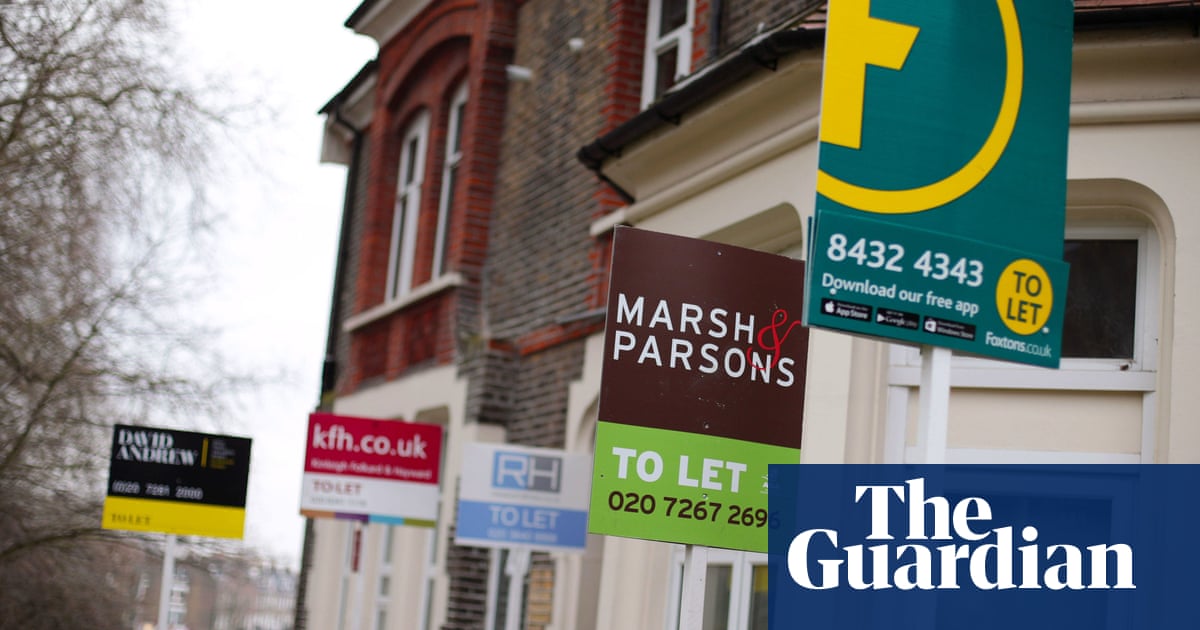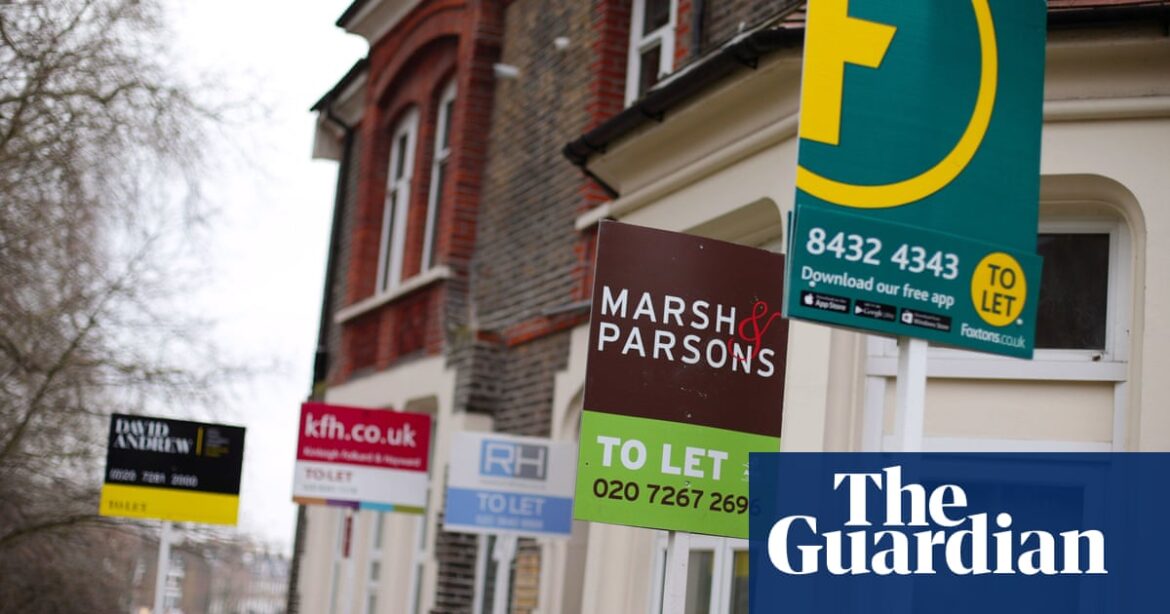
According to official statistics, the average monthly rental cost for tenants in the UK increased by 9% in the period of one year ending in February. This is the largest annual rise recorded since data collection began in 2015.
Numbers published by the Office for National Statistics on Wednesday brought attention to a situation that one advocate characterized as an “affordability crisis for renters,” as prices continue to increase throughout the entire United Kingdom.
The average monthly rent in England reached £1,276, showing a 8.8% rise from the previous year. In Scotland, the average rent rose by 10.9% to £944, and in Wales it increased by 9% to £723. Data for Northern Ireland is not yet available, but according to the ONS, there was a 9.3% increase in rent there as of December 2023.
The largest increase occurred in London, which already had the highest rent in the UK. The average monthly expense for a tenant rose by 10.6% compared to last year, reaching £2,035.
Rent prices have steadily risen since the beginning of the ONS data collection, but there has been a notable increase in the speed of change in recent months. This is due to a combination of landlords facing higher interest expenses and a decrease in the number of rental properties, causing prices to go up.
The numbers for February are the greatest since the ONS began releasing this index. It takes into account both new and existing rental agreements in England and Wales, newly advertised rentals in Northern Ireland, and mostly new rentals in Scotland.
According to Ben Twomey, the CEO of Generation Rent, the statistics are “staggering yet expected,” and renters are nearing “the absolute limit of what is manageable for us financially.”
According to him, while the issue of high living costs seems to be improving, the problem of expensive rental prices is still ongoing. This is not solely due to an increase in landlords’ expenses, as more than half of rented homes are not subject to mortgages. This suggests that landlords are raising rent solely because their tenants have limited options and must pay the inflated costs.
He urged the government to prohibit excessive increases in rent prices and construct more accessible and subsidized housing.
According to Greg Tsuman, who is both the director of lettings at Martyn Gerrard estate agents and the president of Arla Propertymark, rent prices will continue to go up. He also pointed out that taxes for landlords are a major factor in this trend.
Unfortunately, it is not surprising that we are currently experiencing the largest rise in private rent prices on record. The housing market is facing multiple challenges, including high interest rates, a severe shortage of new housing options, and landlords leaving the market due to burdensome tax responsibilities.
He stated that this had “generated a perfect confluence” and requested a revamp of taxation regulations for property owners.
The government must take immediate action as this situation is not able to continue. Changes must be made to significantly increase the number of available homes and the tax system for private landlords should be reevaluated promptly. This could entice landlords to return to the market and address the shortage of housing.
The charity Independent Age warned that unless the government takes action to protect them, older renters may be at risk of being neglected as the figures are released.
The report titled “Paving the Way: Lessons for England from Other Nations in Assisting Elderly Private Renters” states that rent increases above the inflation rate are particularly challenging for individuals with limited, unchanging income.
According to its survey, 45% of elderly renters in England are concerned about their ability to cover their rent expenses. The author recommends the government examine programs like Ireland’s Rent Pressure Zones, which restrict rent increases to match inflation or a maximum of 2%.
Joanna Elson, the CEO of Independent Age, stated that England is falling behind numerous other countries in safeguarding elderly renters.
Although no place is flawless, the UK government has the opportunity to gain insight from other countries, as well as from neighboring parts of the UK, in order to enhance protections for the increasing elderly population who are renting.
Source: theguardian.com



